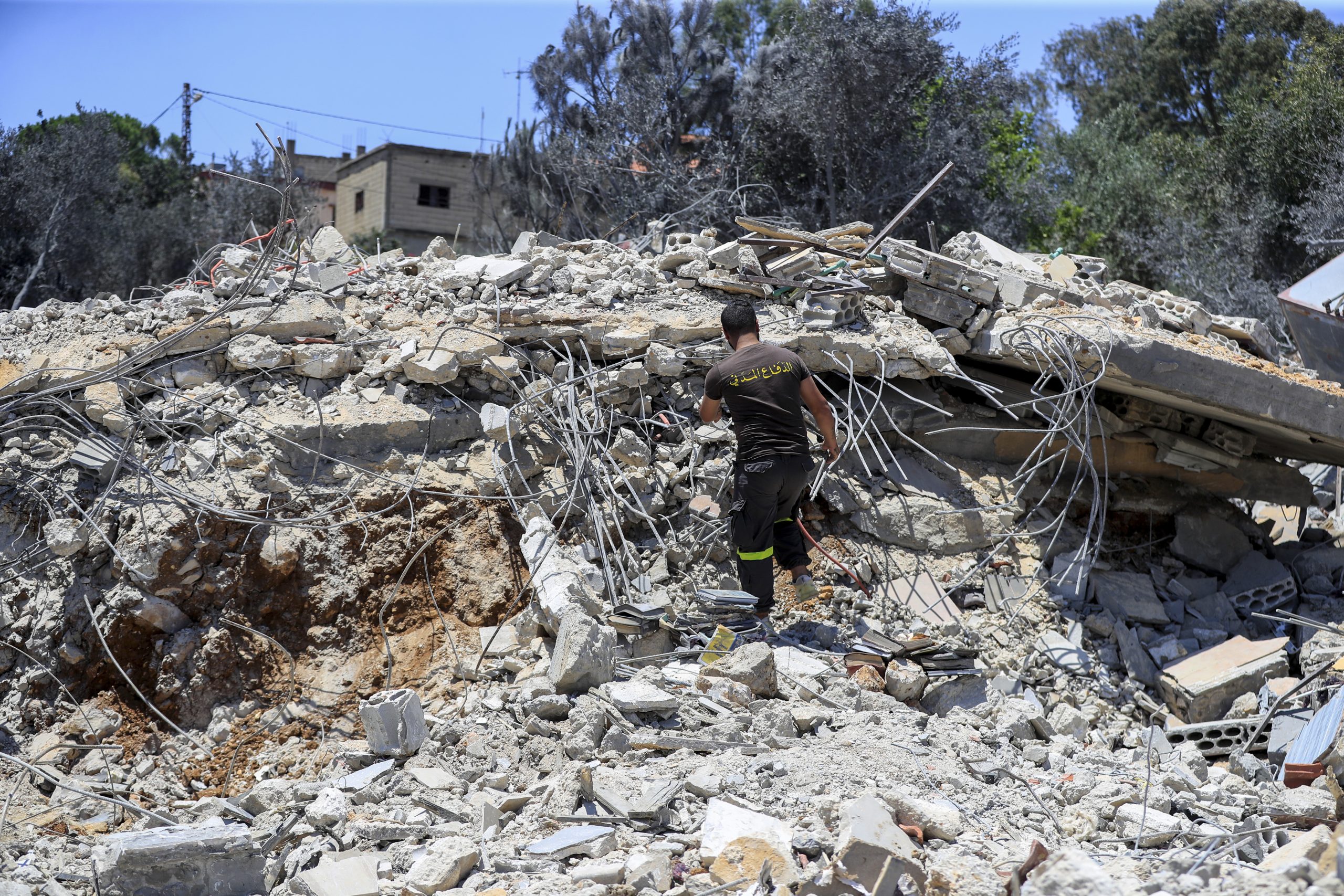
Back in May, Amos Hochstein, US President Joe Biden’s point-man for keeping a lid on tensions between Israel and the Lebanese militant group Hezbollah, spoke in a webinar.
“What I worry about every single day,” he said, “is that a miscalculation or an accident… hits a bus full of children, or hits another kind of civilian target, that could force the political system in either country to retaliate in a way that slides us into war. Even though both sides probably understand that a fuller or deeper-scale war is in neither side’s interest.”
The equivalent of that bus came on Saturday evening in the Israeli-occupied Golan Heights.
READ MORE: Israel strikes back after missile from Lebanon kills 12 children
A rocket, which Israel says was launched by Hezbollah from Shebaa in southern Lebanon, slammed into a soccer pitch in the Druze town of Majdal Shams. Twelve children, ranging in age from 10 to 16, were killed while taking part in a training session. Hezbollah has denied responsibility for the strike. Will Hochstein’s fear of a fuller-scale war now also come to pass?
If Israel’s Foreign Minister, Israel Katz, is to be believed, it probably will. “We are approaching the moment of an all-out war against Hezbollah,” he said in an Israeli television interview on Saturday evening.
“The response to this event will be accordingly.”
The US has apparently blessed retaliatory action, to some degree. “We stand by Israel’s right to defend its citizens from terrorist attacks,” said Secretary of State Antony Blinken, before adding that the US did not want to “see the conflict escalate.”
READ MORE: Anthea was murdered days after her wedding. We still don’t know her killer
The response, so far, has been relatively timid. More strikes will probably follow.
“We’re fed up with lofty rhetoric and hollow words accompanied by feeble action,” former Israeli Prime Minister Naftali Bennett told CNN.
“The only way to stop all of this, the only way to deter our enemies from hitting us… is to fight back and to hit them. There’s no other way.”
For months now, the international community has been trying to de-escalate tensions between Israel and Hezbollah. With Iran’s strongest proxy estimated to have at least 150,000 missiles and rockets pointing south, the fear is of a war that would devastate Lebanon, and do serious damage to Israel.
READ MORE: Former TV host Andrew O’Keefe charged after allegedly threatening man
Moreover, as Aaron David Miller, a senior fellow at the Carnegie Endowment for International Peace, told CNN, “it has the potential to create a situation that we have never seen in this region: a major regional war, which could draw in the Gulf”. He warns it could also lead to direct confrontation between the US and Iran.
And yet, over the past near-10 months of fighting, Israel, Hezbollah and Iran have always pulled back from what appeared to be the brink. In January, Israel took out a senior Hamas leader in Beirut. All-out war failed to materialise.
In April, Israel killed a top commander in the Iranian Revolutionary Guards Corps (IRCHG) in Damascus. In response, Iran launched unprecedented strikes on Israel. All-out war failed to materialise.
The status quo, of course, can’t continue either. Tens of thousands of Israelis have been displaced from their homes. Large swathes of northern Israel are like ghost towns. A similar picture plays out in southern Lebanon. The best way to avoid all-out war between Israel and Hezbollah, says Blinken, is to get a ceasefire in Gaza. Talks aimed at achieving that resume on Sunday.
But that would only be a short-term fix. Israel wants to remove the Hezbollah threat entirely, moving it back to the Litani River, in accordance with the UN Security Council Resolution that ended the last major war between the two in 2006. “If the world doesn’t get Hezbollah away from the border, Israel will do it,” said Israeli Defence Minister Yoav Gallant in December.
And so despite the bombast, domestic pressures, the fears and the escalations, the fighting between Israel and Hezbollah continues to simmer rather than boil over. No one seems to want this war. But as Hochstein warned in that same webinar: “Wars have started historically around the world even when leaders didn’t want them, because they had no choice.”
links to content on ABC
9News





